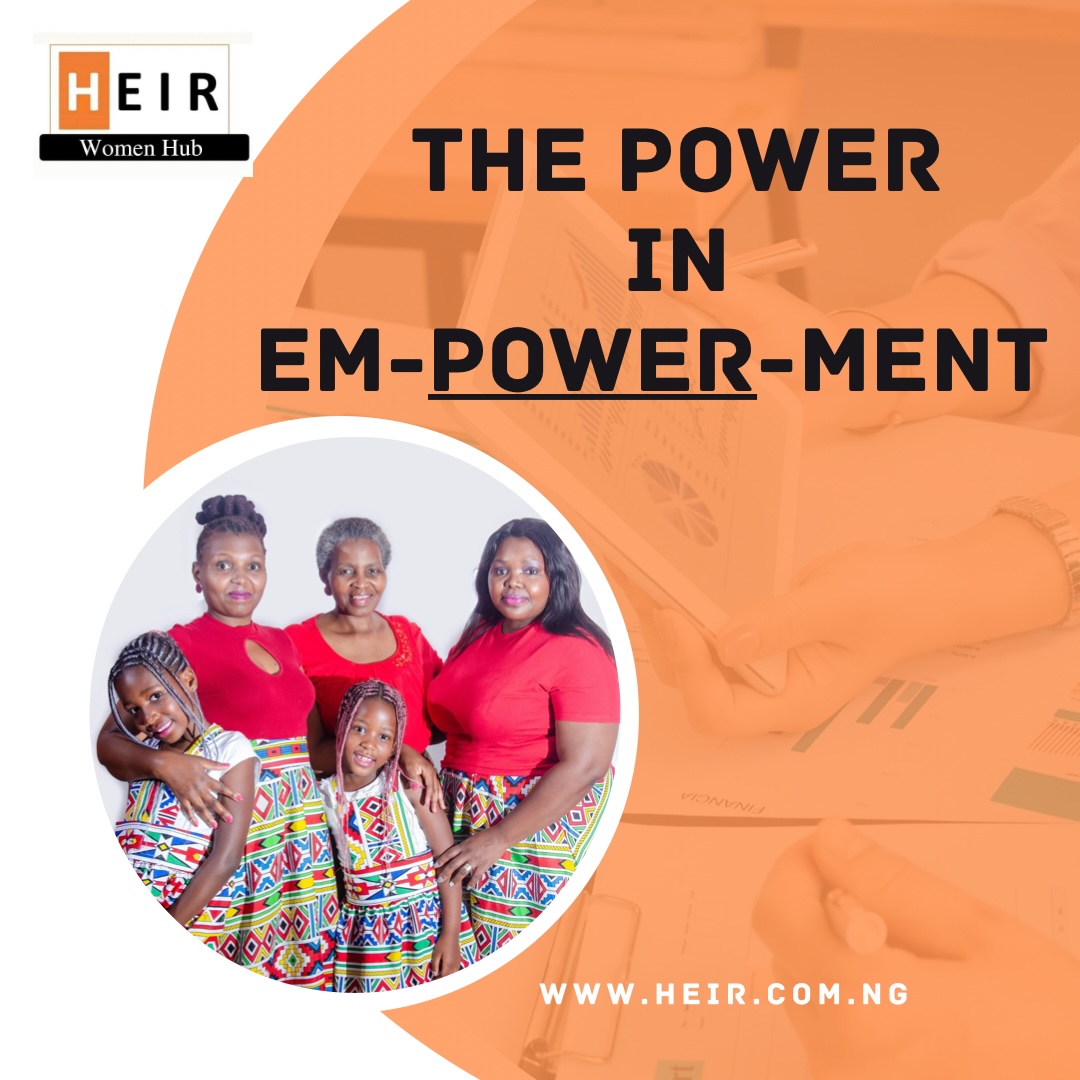
Nigeria has for a long time, allocated the economic scalability of women to International Organisations such as the World Bank, International Donors and Civil Society Organisation. An institution created to also see to the needs and wants of women, children and vulnerable members of the society such as the Ministry of Women Affairs, struggles to meet Global standards of women empowerment. State Government (Governors) with wives (First Lady) seldom carry out a “pet project” geared towards impacting the economic outcomes of rural and vulnerable women and children in their individual States, local governments and communities. Question is, how many women has this “empowerment” truly impacted and taken out of poverty? One can argue that empowerment can be contextualised and localised. Before we unpack this, let’s remind ourselves what the term “empowerment” means.
Empowerment means the opportunity or process to become stronger and confident in the affairs of your own life. You have the authority and power to make decisions that can position your economic and social stability and security. When we use empowerment as a language in Nigeria, we may argue as well that the outcome can be measured because we “see” the act of people (women in this case) being given some power and access that was not available. However, in the application of empowerment, we can see the nuance of the term empowerment. As this takes us to the contextualisation and localisation of empowerment, we can theorise that women’s empowerment cannot be generalised. There requires a need to check in with what local context applies to different needs and then apply what empowerment is required effectively to context it is needed.
The most recent empowerment by the Ministry of Women Affairs in Nigeria was the giving out of tricycles and sewing machines. The intention behind this “Pink Riders” was to enable women “feed their families, reduce nagging and save money”. It is important to note that these were given to women located in Abuja, a city in the Federal Capital Territory in Nigeria where we have more urbanisation and white collar jobs. It is possible that these loans of tricycle are required for women to be empowered, the question is, how did the Ministry arrive at this intervention? Is this the right solution for the sample size in Abuja? Where other factors such as insecurity and social norms considered when deciding on this intervention? There is research that suggests that Intimate Partner Violence (IPV) increases when power dynamic shifts due to financial accessibility between women and men, was this a consideration when implementing this project?
The wife of the Nigerian President, Oluremi Tinubu, has also launched a project aimed at the empowerment of women and children. The First Lady shares that the Renewed Hope Initiative (RHI) looks to focus on agriculture, education, economic empowerment, health and socio-investment. While there are criteria for beneficiaries such as access to Bank accounts, this initiative will utilise unspent campaign funds as well as solicit support from International Donors. Further implementation strategies and breakdown are yet to be shared as at the time of this article. While vulnerable women and children are the center of this cause, it would be critical to understand the strategy planned in localising and contextualising this support. What is this support going to look like in real time? What will be the measuring tool? How many women and children are numbered in this Nation as living in multi-dimensional poverty and how many, across the number of years this project will run, will be supported? Lastly what is the tangible impact that a woman and child that is a benefactor, has been “empowered”?
The World Bank approved five hundred million dollars $500.000.00 for the Scale Up of Women’s Empowerment for Better Economic Outcomes. The aim is to support or should I say “empower” the Nigerian Government to improve women’s lives. The NFWP-SU is largely working to close economic inequality. While World bank is assisting Nigeria in economic empowerment interventions, the implementation in 6 States of Nigeria means World Bank has 30 more to go. Is the initiative by the First Lady of Nigeria going to link and collaborate with an already working strategic project? Are the 6 States that have benefited from the NFWP-SU project working alongside the State Governor’s office (or First Ladies) to amalgamate efforts towards economic inclusivity of women? Or are we all working in silos to reach individual markers? As at this article development, Federal Ministry of Women Affairs is the Implementing Agency for the NFWP-SU with the World Bank.
EmPOWERment has embedded meaning in varying contexts. The word in itself can mean the positioning for a positive and progressive possibility. It can mean enabling either a person, economy or environment, to achieve objectives that seemed unattainable. Empowerment is being used as a language and terminology for the re-positioning towards an ideal, somewhat better and more profitable outcome. While this language and meaning can be nuanced, there is no denying the fact that empowerment and empowering is binary focussed.
UNFPA shows a progress in “empowering” women in some parts of the world, applicability in developing countries like Nigeria where it’s obvious that Social Norms influences power dynamics needs further contextualisation. What dis-empowers is more structurally nuanced than a universalised term.
In an ideal context, we all should have the power to make decisions that will better our lives. That power should not be controlled by anyone else. In reality, to achieve true empowerment, Nigeria has to be accountable to women and take the responsibility in ensuring that it puts power back to the hands and lives of women.
Añuli Aniebo
